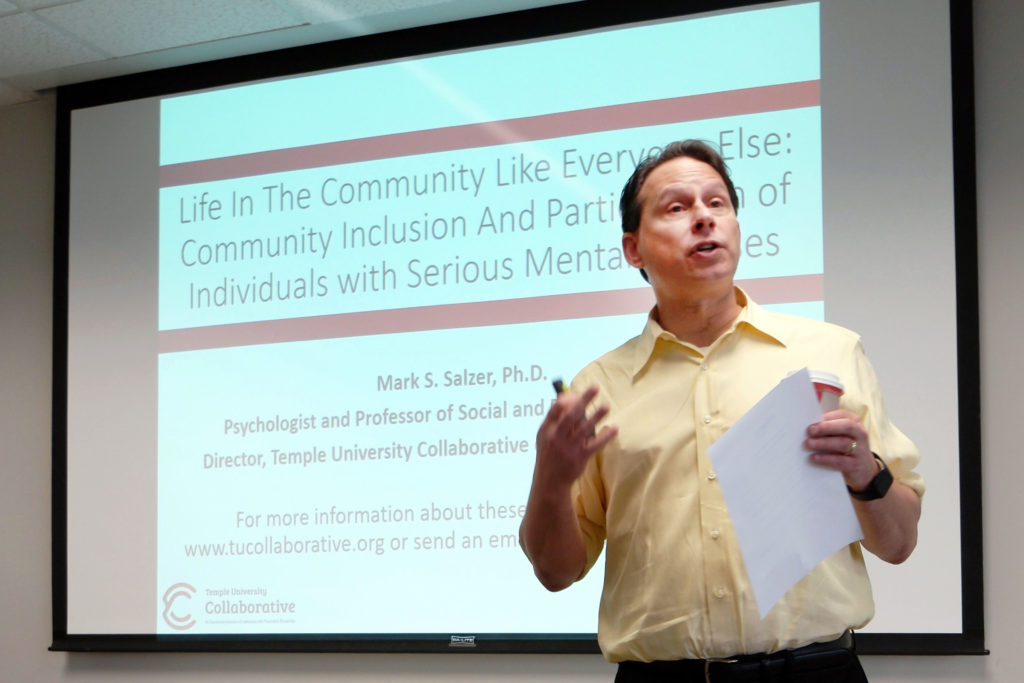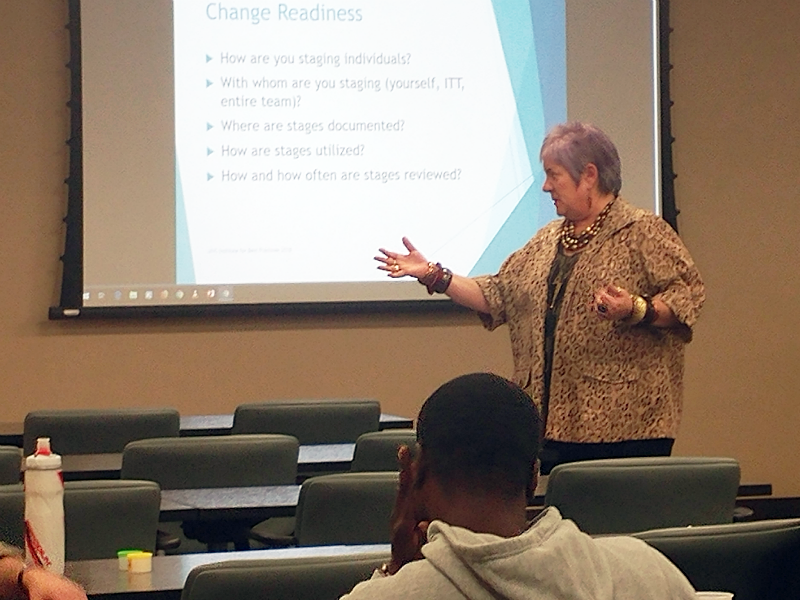Supporting Community Participation
February 7th, 2019
By way of invitation by Alliance Health, Mark Salzer, Ph.D. and Bryan McCormick, Ph.D. from the Temple University Collaborative on Community Inclusion, joined by our very own Lorna Moser, Ph.D., led a workshop with assertive community treatment (ACT) and transition management services (TMS) teams. Agency leadership and staff convened to discuss the importance of and ways to best support people in meaningful community participation.

Mark S. Salzer, Ph.D.
Life In The Community Like Everyone Else
“People experience disability versus having a disability.” Rather than exclusively focusing on the person as the one with the problem (i.e., “having a disability”), we should be focusing equal or more effort at how the environment fuels disability. For individuals with mental illness, stigma, discrimination, and exclusion are the environmental factors creating an experience of disability.
Community inclusion and participation goes well beyond employment and housing, it also includes friendships, intimate relationships, connecting with groups in a meaningful way, as well as participating in civil life and the larger community. Research shows that meaningful participation can be as important to overall health as medications and therapies, yet it rarely gets the attention and investment it deserves. Community inclusion and participation is a medical necessity for good health for all of us.
Gallery:






